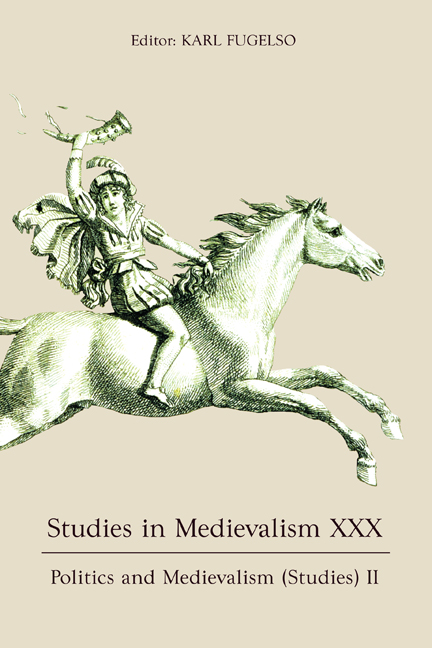Medievalism and Gulf-War Politics in Tariq Ali’s A Sultan in Palermo
Published online by Cambridge University Press: 24 March 2021
Summary
One day in early 1991, as Tariq Ali was watching the coverage of the First Gulf War, he heard a commentator say “the Arabs are a people without political culture.” The statement incensed Ali on several fronts. First, he rejected its reduction of the diversity of Middle Eastern cultures into the flattening descriptor “the Arabs.” Secondly, as a Pakistani Briton whose post-partition childhood was shaped by his family's commitment to Marxism, Ali rejected the statement's characterization of Islamicate cultures as religious rather than legitimately political. As a seasoned leftist and anti-colonial activist, he had followed the politics of the Middle East and the wider Islamicate world closely, writing journalism, nonfiction tracts, and creative works on a range of issues. Ali's chief objection to the throwaway remark was to what he saw as its ahistoricism – its dismissal at one stroke of centuries of conquest, governance, and struggle throughout the Islamicate world. Initially planning to write an essay to rebut these claims, he instead found himself travelling to Southern Europe and the Mediterranean to make an episode of the Channel 4 program Rear Window, “Islam in Spain: The Final Solution,” recounting the history of Islam's influence on medieval European society.
While visiting the palaces, fortresses, and mosques of the Islamic kingdoms of al-Andalus and Sicily, Ali found himself wanting to “bring back the people who had lived around there” for his modern followers. The method he determined would best achieve this was fiction; and so out of this process the 1992 novel Shadows of the Pomegranate Tree was born. Set during the Inquisition in Granada in 1499–1501, it was the first of what was to be Ali's Islam Quintet, written across a decade and a half. No fewer than three novels in the Quintet are set in the period widely known as the Middle Ages. In addition to Shadows of the Pomegranate Tree, The Book of Saladin (1998) follows the rise of its eponymous warrior sultan as he unifies Egypt, Syria, and Palestine, while A Sultan in Palermo (2005) is set in Sicily in the final year of the Norman king Roger II's life and rule.
- Type
- Chapter
- Information
- Studies in Medievalism XXXPolitics and Medievalism (Studies) II, pp. 1 - 8Publisher: Boydell & BrewerPrint publication year: 2021

